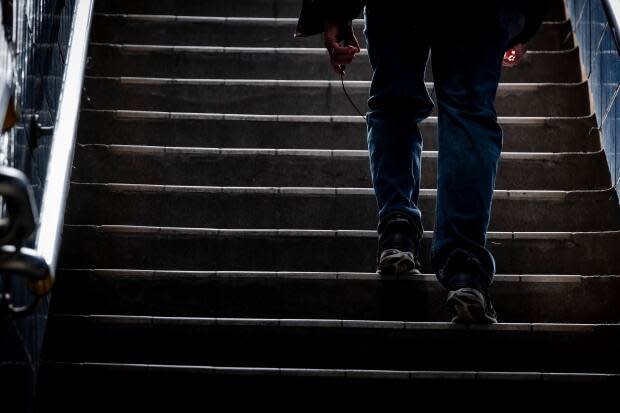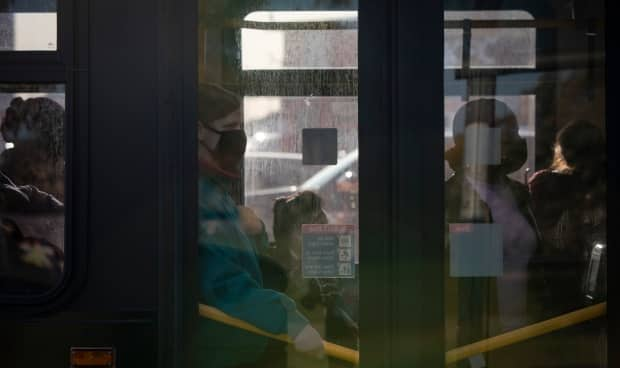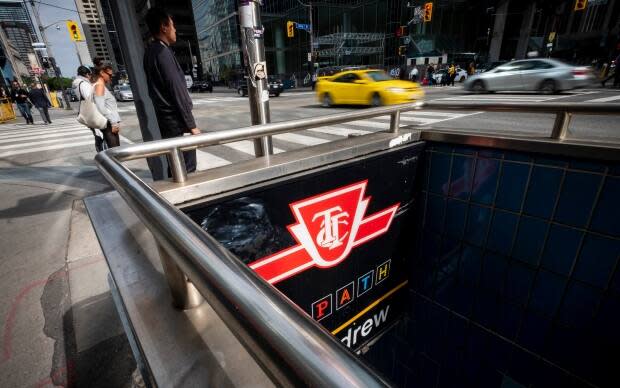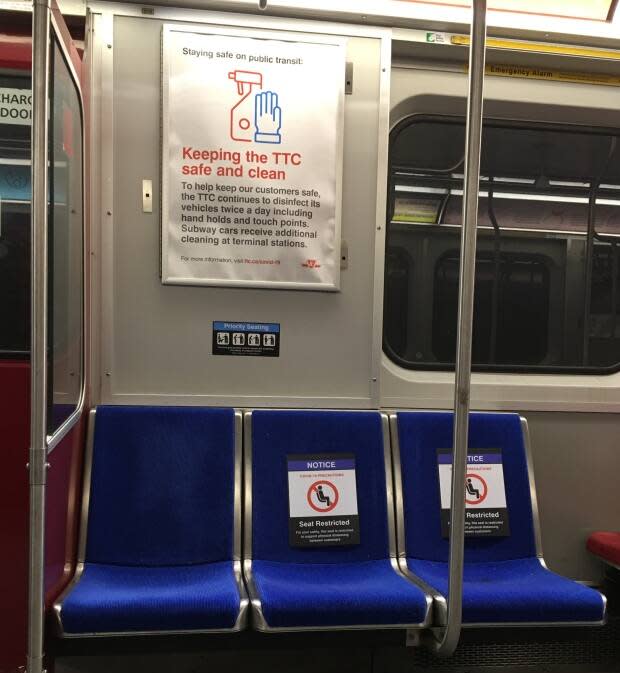TTC drivers launch petition to help unhoused people seeking shelter on transit system

TTC operators are demanding more government help for unhoused people who are riding streetcars, buses and subways to stay warm during the COVID-19 pandemic.
In an online petition, the operators say they are having to deal with the problems of homelessness, mental illness, substance abuse and addiction on their vehicles every day.
The operators say they have seen people using drugs, people turning rows of seats into "makeshift bedrooms" and people becoming violent due to mental health issues. The problem is now acute, they say.
"As public transit workers, we are compassionate individuals, but at the end of the day, we are not social workers, and we can not solve society's problems by ourselves alone. We demand that all levels of government mobilize the resources to solve this crisis immediately," the operators say.
When these problems are brought to their attention, the operators say they have no choice but to investigate, and on occasion, they have been threatened and assaulted for simply investigating.
"To be abundantly clear, we are not trying to vilify or disparage any of these individuals. We recognize many are suffering from these situations due to little or no fault of their own," the operators added.
In the petition, the operators demand the following:
Harm reduction and overdose prevention and response teams who would visit streetcars to talk to and educate people who need help.
Street outreach workers who would patrol TTC vehicles to make referrals to shelters and provide education.
Teams of crisis workers who would visit transit vehicles to offer help when required or give advice to a driver about a particular person and situation.
A "mass program of high-quality social housing" to address homelessness, along with all the necessary tools and services to help people cope with problems and get back on their feet.

Jason Watts, a TTC bus driver with 12 years experience, said the problem is worse on any route near a shelter because people seek refuge on TTC vehicles if shelters are full.
Watts wrote the petition with the help of another operator and 23 streetcar operators have endorsed the petition, he said. More than 230 people have now signed it.
"Downtown does have its inherent problems. These problems have always existed. With this pandemic, they have been escalated. They have been put out into the open. I had seen people sleeping in the vehicles in stations, outside the stations, on the streets, for years. But with this pandemic, I am seeing more of it and it seems more prevalent," Watts said on Saturday.
"It doesn't have to be like this. This doesn't need to happen. We have so much abundance in the way of money available to address these situations. We need help from all levels of government."
Watts said TTC operators are sympathetic to the plight of people who do not have homes.

Charlotte Smith, an outreach volunteer with the Encampment Support Network who visits encampments at Trinity Bellwoods Park and Scadding Court, said many unhoused people are seeking shelter in the transit system because they are trying to get warm where they can. The city's warming shelters only open when the temperature drops to –15 C, she noted.
"The city needs to provide more permanent rent-geared-to-income housing in the downtown core for people who are living outside and also put a moratorium on encampment evictions," she said. "The city hasn't provided adequate options that meet people's needs."
TTC 'not appropriate' homeless shelter, union says
Carlos Santos, president of Amalgamated Transit Union Local 113, said the union supports the petition and he pointed out that the pandemic has created new problems for unhoused people. He said the city must take action.
"While we're sympathetic to those using the TTC for shelter, it's important for the TTC to ensure safety for workers and riders at all times," Santos said.
"The TTC is not an appropriate shelter for homeless people and the City of Toronto must do more to help homeless people find suitable shelter, especially during this pandemic," Santos said.

'Homeless individuals are not inherently a threat'
TTC spokesperson Stuart Green noted that the transit agency has seen an increase in calls for service involving vulnerable people in the past year.
Green attributes that increase to the colder weather, unhoused people on the TTC being more visible because ridership is down 70 to 75 per cent compared to before the pandemic, and places such as public libraries, malls and coffee shops being closed while Toronto has been locked down.
He said more unhoused people are using stations and facilities for shelter than in a typical winter.
"Homeless individuals are not inherently a threat. Our experience is that many are just looking for a warm place to escape the cold weather," he said.
Green said individual drivers are exercising discretion where they notice a minor offence, such as a person loitering on a train or sleeping on a bench, and there is no risk to public safety. But he added: "We want everyone to not only feel safe, but actually be safe on the TTC."

The TTC special constable community engagement unit has been working since last April with the city's Streets to Homes outreach workers and both teams have been patrolling the TTC system to help unhoused people find shelter space and get food vouchers, he said.
City creating spaces through winter services plan
The city's Shelter, Support and Housing Administration, for its part, said in an email on Saturday that it has been working hard to help unhoused people in Toronto.
As part of the city's response to COVID-19, Toronto has opened more than 40 temporary facilities to ensure there is physical distancing in its shelter system and to provide spaces for people to move indoors from encampments. The city is also opening another 680 spaces, through a combination of shelter and 24-hour respite beds, hotel rooms and supporting housing units.
"The ultimate goal to help those experiencing homelessness to be safe and to get them the support they need. This includes permanent housing," the city said in an email.
The city said, in 2020 to the end of January, it moved more than 3,220 people in shelters into permanent housing through a combination of housing allowances and rent-gear-to-income units.
With the help of agencies, the city said it secured permanent housing for 473 living in encampments last year. More than 1,300 people have also accepted indoor space since the start of the pandemic, it added.
